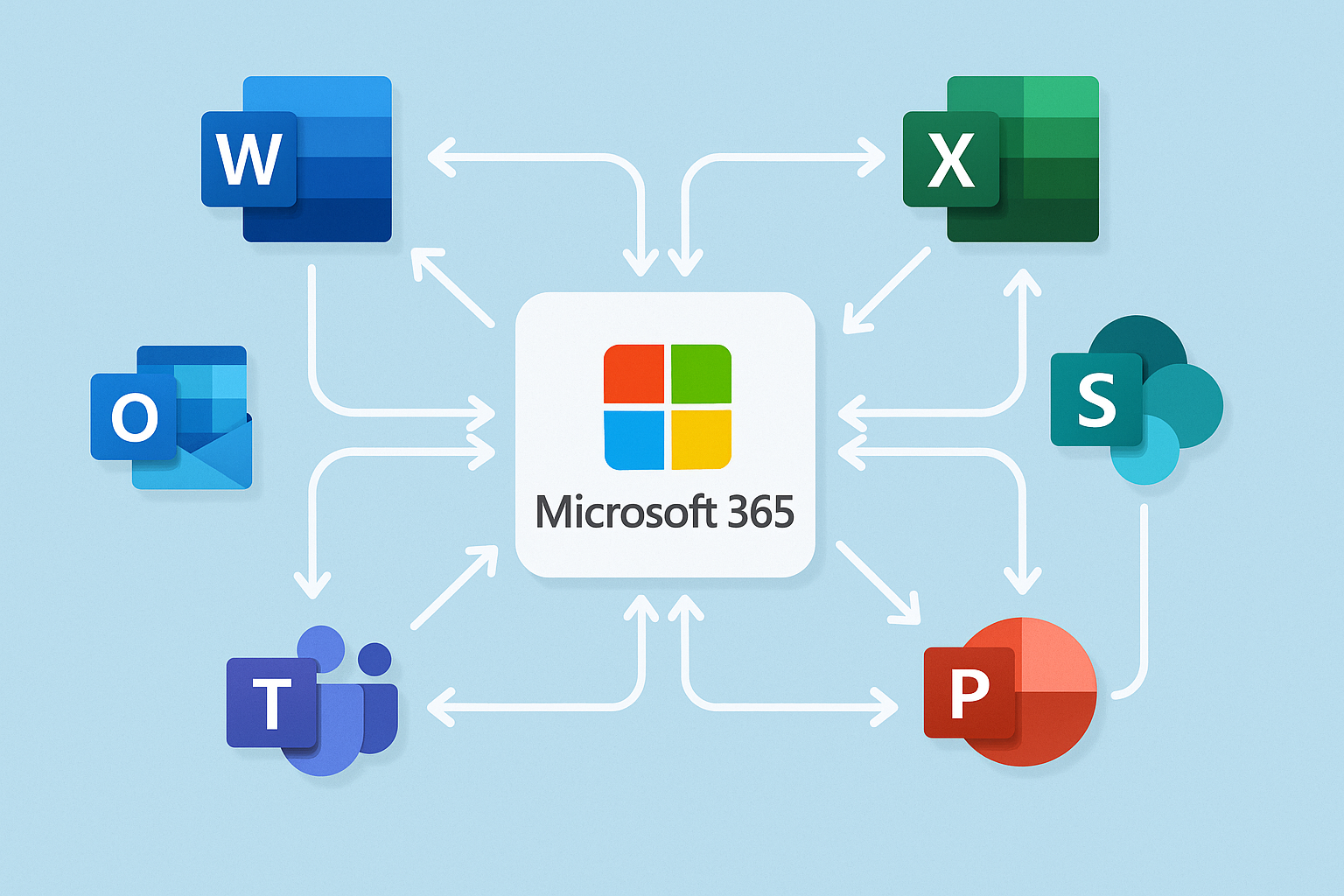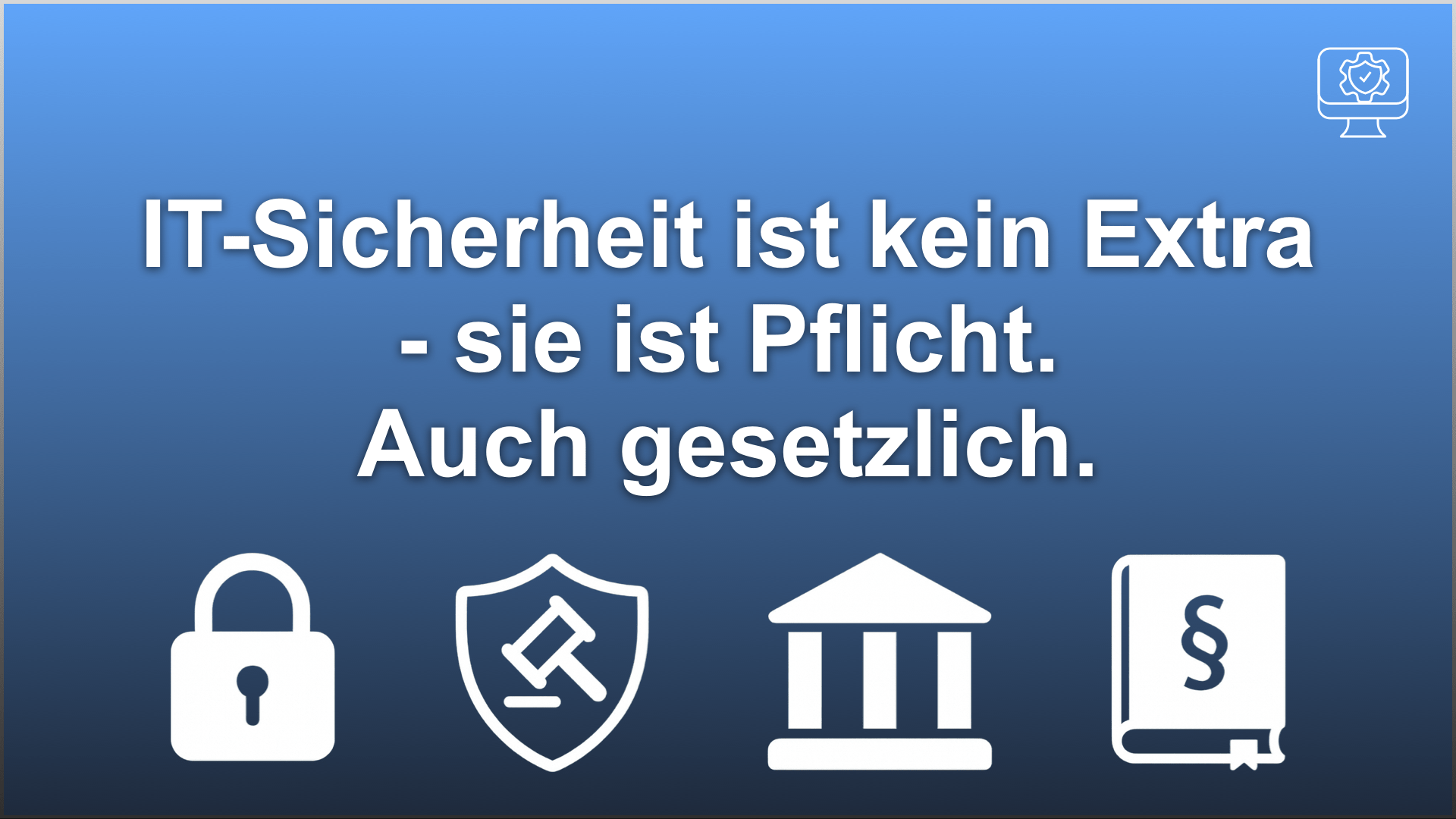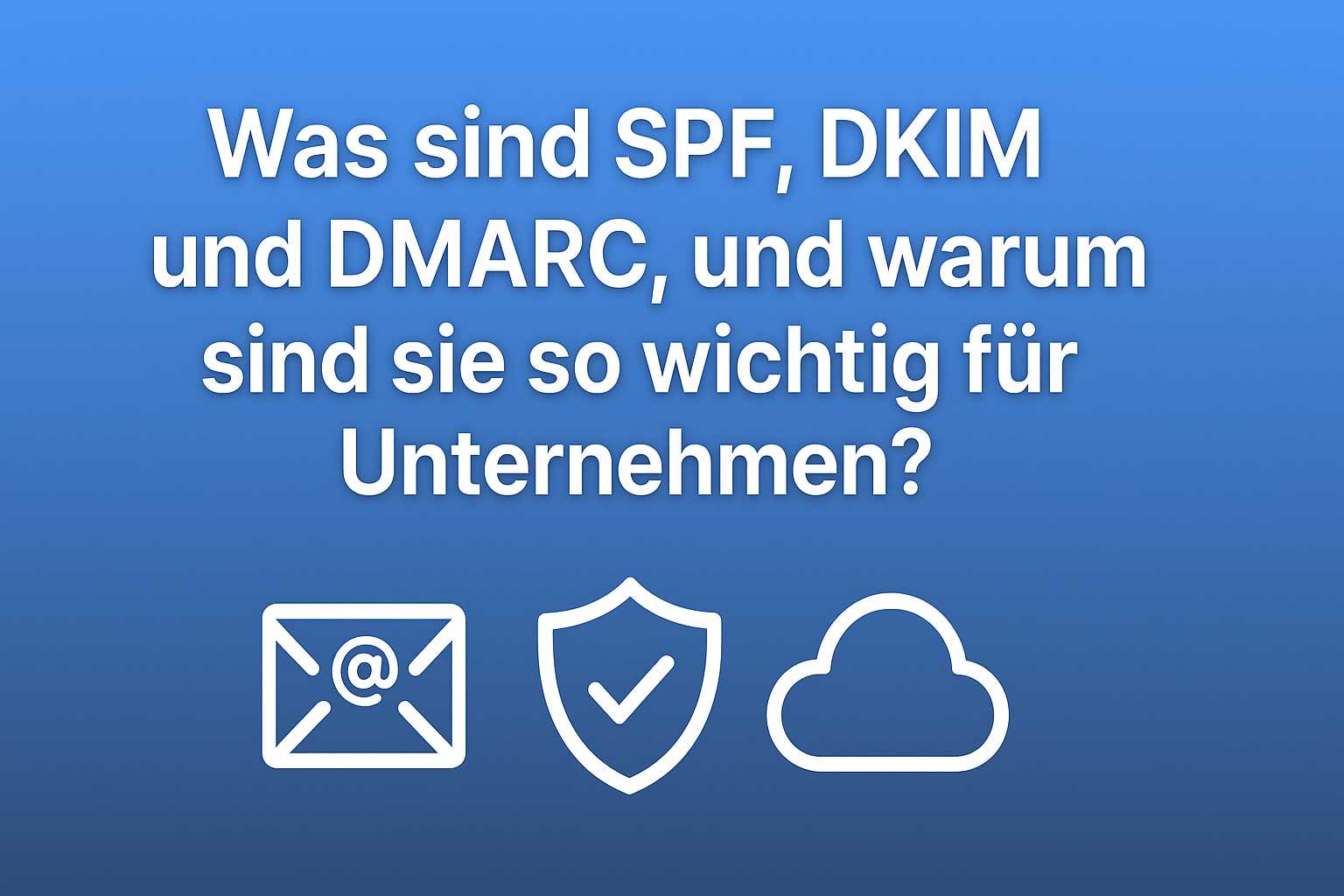
IT security isn’t optional – it’s legally mandatory

“We’re not a big corporation – there’s nothing to steal here.”
I hear this sentence often when talking to small businesses about IT security. Unfortunately, it’s misleading. Small and medium-sized enterprises (SMEs) are increasingly becoming targets of cyberattacks. Why? Because they are often less protected. Meanwhile, attacks are becoming more complex and happen automatically around the clock.
This is not about scaremongering – it’s reality. And it’s every company’s responsibility.
Because IT security is no longer optional – it’s a legal requirement.
Required by the GDPR
The General Data Protection Regulation (GDPR) has been in effect since 2018. Many see it as bureaucratic overkill, but its core message is clear:
Personal data must be protected – both technically and organizationally.
Article 32 of the GDPR states that companies must implement “appropriate technical and organizational measures.” But what does that mean in practice?
- Systems and software must be kept up to date (patch management)
- Secure access: strong passwords, MFA, role-based access
- Data must be backed up regularly
- IT security solutions must meet the current state of the art
- Access must be traceable and limited
- Employees must be trained (awareness)
-
Everything must be documented
This is not a wishlist – it’s a legal obligation.
NIS2 – The Next Level of Security for SMEs
Things get even stricter with the NIS2 directive. For the first time, it doesn’t only apply to large corporations but also to many SMEs.
Affected industries include:
- IT service providers
- Healthcare and medical technology
- Transport and logistics
- Food industry
- Mechanical engineering and manufacturing
-
And service providers in the supply chains of those sectors
In other words: even if you’re “just a supplier,” you’re still responsible.
What does NIS2 require?
In short: even more control, traceability, risk management, incident handling, and training. All with proof.
Imagine running a warehouse. You would never leave the doors open for anyone to walk in. Yet many businesses do just that with their IT systems – unknowingly.
Typical Misconceptions in Small Businesses
- “We have antivirus.” – That’s nice, but it’s not enough.
- “The data is only on the laptop.” – And what if the laptop is lost?
- “The network is internal.” – But all devices are connected to the internet.
IT security is like car safety:
You need more than just a seatbelt – brakes, airbags, maintenance, and someone to check it all regularly.
What Can a Professional IT Partner Offer?
A Managed Service Provider (MSP) offers more than just tools – they bring structure:
- Analysis of your current systems
- Suggestions for what’s reasonable and affordable
- Implementation of security concepts
- Ongoing support, updates, and monitoring
- A clear point of contact when problems arise
- Documentation for compliance (e.g., GDPR, insurance)
You’re not paying for software – you’re paying for security and peace of mind.
It’s like hiring a tax advisor: sure, you could do your own bookkeeping. But do you really want to? And what does one mistake cost?
What Can You Do Right Now?
- Check if your data is backed up (regularly, externally, tested)
- Make sure your software is up to date
- Use strong passwords and ideally MFA
- Train your team in handling emails and data
- Document what you do
And if you want, I’ll support you along the way.
Conclusion: Security Pays Off
IT security is not a bonus feature – it’s the foundation. For data protection, for your customers’ trust, and for smooth operations.
Laws like GDPR and NIS2 create clear frameworks. But they aren’t the goal. The goal is to protect your business – and give you peace of mind so you can focus on what really matters.
🔒 Act Now: Free IT Security Check for SMEs
I offer small businesses a no-obligation consultation to assess the current state of their IT security.
👉 Book an appointment now:
https://meetings-eu1.hubspot.com/daniel-juch


